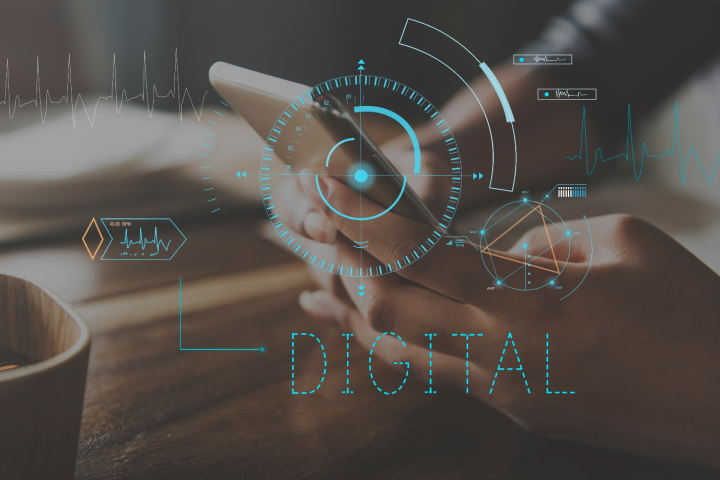One of the most significant revolutions in the modern era is the development of the mobile smartphone. The smartphone has had a profound impact on the modern world in a way that initially seemed implausible. In the early days, smartphones were introduced as a luxury, and only a select few could afford one. As time has passed, the smartphone has become more accessible than ever and is widely regarded as essential for the majority. The smartphone is relied upon for numerous functions, including banking, shopping, work, navigation, entertainment, and more.
Advances have kept pace with this rise in importance in design and performance. Screens grew brighter and sharper, cameras began to replace traditional ones, and app stores created entire industries. A whole generation has grown up with smartphones at the centre of daily life. Yet, as technology evolves, there is a growing discussion about what comes next and whether the smartphone age may be coming to a close.
The Signs of Change
The change in the smartphone market is reflected in customer opinions, as many are beginning to believe that new smartphones offer only minor improvements over previous models. With each passing year, new developers release the next best smartphone. Many customers worldwide believe that the slight improvements in camera quality or faster chips do not justify the price increase. For many users, the difference is hardly noticeable. The excitement that once surrounded new launches has started to fade from what was previously seen.
At the same time, the market has reached a point where almost everyone who wants a smartphone already has one. Growth has slowed, and in some places, sales are declining, indicating that the product may no longer have the same ability to capture attention as it once did.
The Rise of Wearables and New Devices
Attention has begun to turn towards new types of technology, with wearable devices getting increasingly advanced. Some popular wearable technological devices include smartwatches and fitness trackers, which can assist in numerous ways. They can now monitor health, make calls, and send messages. Virtual reality and augmented reality are also being developed as ways of changing how people interact with information.
Tech companies are investing heavily in these areas because they see them as the next step. If wearables and headsets become widely adopted, the smartphone may no longer be the centre of digital life. Instead, it could become just one part of a wider system of connected devices.
Shifts in Everyday Behaviour
The mobile smartphone has undergone a significant shift in everyday behaviour, with the younger generation utilising it in new ways. Traditionally, the primary use of smartphones was for making phone calls or sending text messages. In contrast, the younger generation today spends more time on social media platforms and games. The youths are less concerned with the device itself and more focused on the experiences it gives them.
This shift could mean that future generations are less attached to smartphones as objects of desire. They may prefer new forms of technology that feel more natural, such as voice-controlled devices or lightweight glasses. The smartphone, while still useful, might feel less central in comparison to other devices.
Challenges Facing Smartphones
Smartphones also face challenges linked to their constant presence in daily life. Recent studies have indicated that screen time is higher than the pre-pandemic average, suggesting that some people seem to be ‘stuck’ on their devices. As a result, schools and governments have begun to impose restrictions on smartphone usage in these environments to ensure that academic studies receive primary focus.
Battery life, repairability, and environmental impact are further areas where smartphones are being criticised. Producing and discarding millions of devices each year creates waste and uses valuable resources. Calls for more sustainable practices are growing stronger, which could prompt companies to reassess their approach.
The Role of AI and Cloud Computing
Artificial intelligence and cloud services could reduce the importance of smartphones. With AI tools becoming more common, people can access information and complete tasks without needing the power of a high-end device. Processing can be done on remote servers, with results delivered to any connected device.
This means that smaller, lighter gadgets could provide the same services once limited to smartphones. If technology becomes less tied to the physical phone in your pocket, the idea of the smartphone as the main hub of digital life may start to fade.
The Human Side of Technology
Despite these changes, the story of technology is not only about machines. It is also about how people use them and the culture that grows around them. Smartphones have shaped music, film, sport, and even politics. They have allowed families to stay in touch, businesses to reach global audiences, and artists to share their work instantly.
Even as new forms of technology emerge, people will continue to seek entertainment and connection. Games remain a clear example. Just as mobile games became a huge part of smartphone use, new platforms will host similar experiences. Strategy-based titles such as the Mines Game show how people enjoy testing their skills and making quick decisions, whether on a phone today or on new devices tomorrow. The need for play and challenge will not disappear, even if the tools change.
Looking Beyond the Smartphone
If the smartphone era is nearing its end, it does not mean the device will vanish overnight. For years to come, billions of people will continue to use them on a daily basis. However, the sense of excitement and innovation that once surrounded smartphones now appears to be moving elsewhere.






